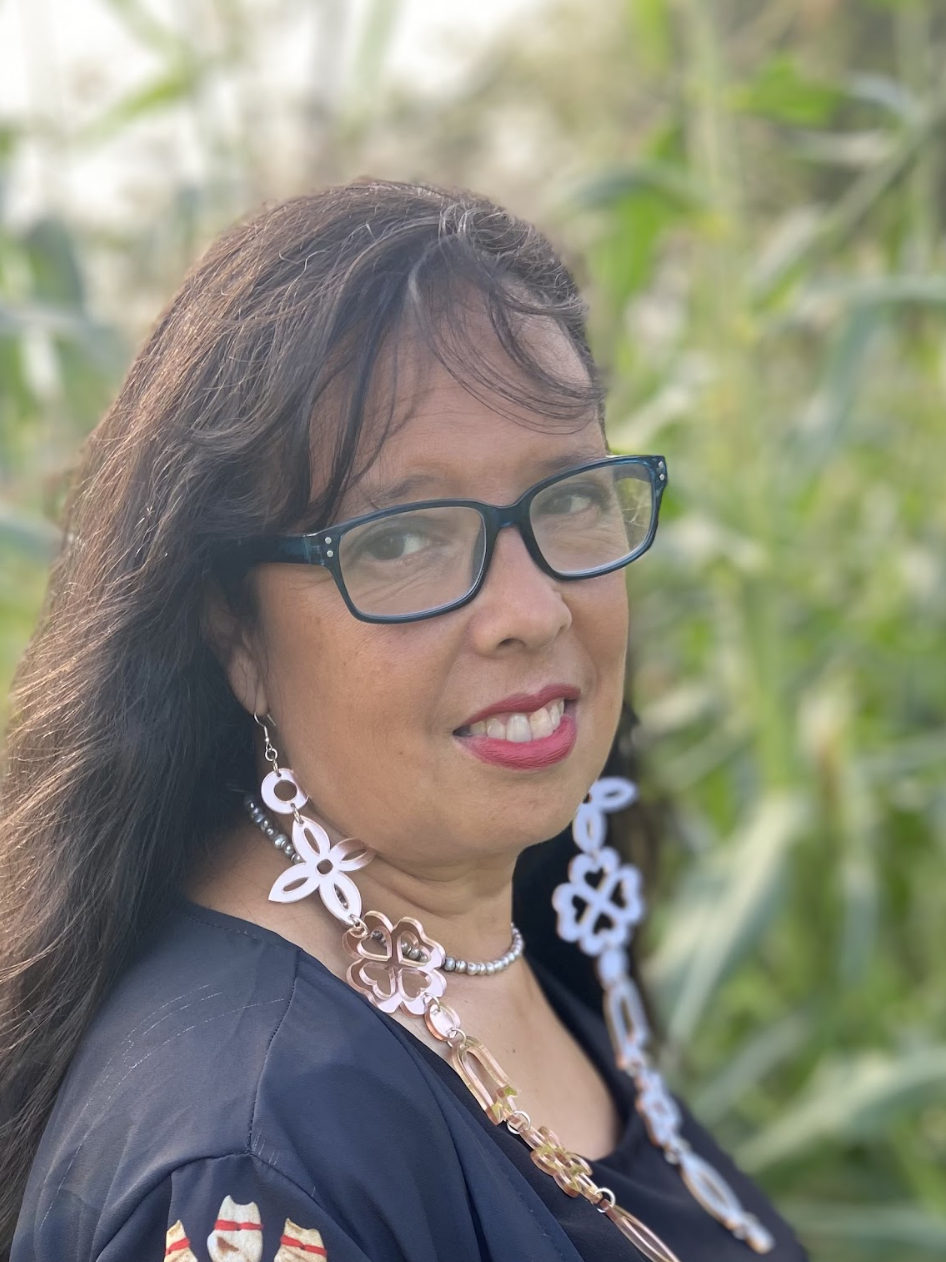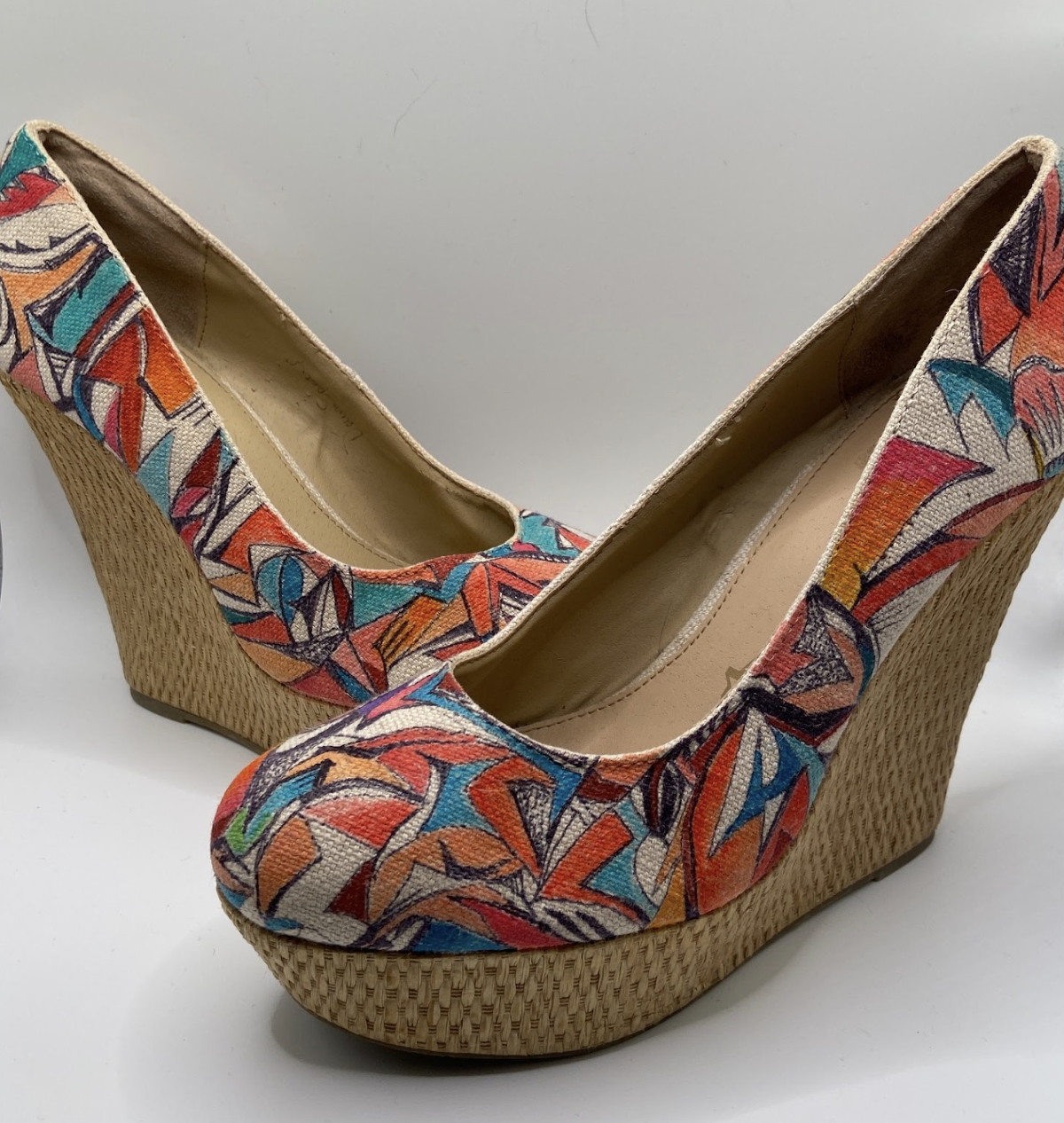
News
Harvard Grad Union Agrees To Bargain Without Ground Rules

News
Harvard Chabad Petitions to Change City Zoning Laws

News
Kestenbaum Files Opposition to Harvard’s Request for Documents

News
Harvard Agrees to a 1-Year $6 Million PILOT Agreement With the City of Cambridge

News
HUA Election Will Feature No Referenda or Survey Questions
Dawn M. Spears on Public Art and Amplifying Indigenous Artistic Traditions in the Northeast
The term “public art” is difficult to define. Yet, the concept is usually connected to the history of a place and the community of people who inhabit it.
Dawn M. Spears is a member of the Narragansett Indian Tribe. She and her husband, Cassius Spears, co-founded the Narragansett Food Sovereignty Initiative. Their farm in Ashaway, R.I. is, according to Spears, most likely the only Indigenous-owned and -operated farm in the state. At the farm, they grow Narragansett flint corn, a species that was once a daily staple for the Narragansett people but is now expensive and difficult to find. The corn is used for eating as well as spiritual and ceremonial purposes.
Spears and her husband also grew an acre of this corn on the land they used for the Narragansett Food Sovereignty Initiative. They saw the corn’s ability to bring together their community.
However, Spears found that the experience of growing the corn for her community, not just for herself, was an enriching experience.
“It was very impactful, and we said at that time that we were growing this to be a medicine — not as a food specifically — and using it for community building. For me, one of the highlights of my time as a food producer was to see the level of community involvement and camaraderie that came from the planting and the harvesting of that corn, and the songs, and the corn braiding,” Spears said.
Spears also uses the corn to create art by fashioning the different parts of the plants into corn husk dolls, pieces that make up a portion of her artistic portfolio.
Even mere immersion in the cornfield and her people’s agricultural traditions provides her with artistic inspiration.
“I was out picking up the last bits of corn in the field yesterday, and I couldn’t help but photograph it to capture it, because I want to do more paintings from it,” Spears said. “It still gives me so much positive energy. It warms my heart to be able to continue growing the corn, because it’s that important — it’s my connection to my ancestors.”
Spears’s own art pieces draw inspiration from the setting around her, particularly the sunrise and the sunset. Her paintings, drawings, and fabric designs feature vibrant colors and geometric designs.
“I love being able to grab those natural colors and try to show the vibrancy in my work,” Spears said.
Outside of her work with her husband on their agricultural endeavors and her own art pieces, Spears keeps herself busy. Much of her focus is on supporting Indigenous art markets in New England. In 2016 and 2017, she put on the Indigenous Fine Art Market East, and in 2018, she produced the inaugural Abbe Museum Indian Market in the Bar Harbor Village Green near Acadia National Park.
“One of my charges that I put upon myself when I worked for the New England Foundation for the Arts was to raise the visibility of art and artists in New England because there’s absolutely amazing work happening here, but we’re not on the map. People think that when they want to buy Indigenous art or Native American art, they have to go to the Southwest, and so I have made it one of my missions that I bring and raise visibility to us being here,” Spears said.
Spears has continued this work through founding and directing the Northeast Indigenous Arts Alliance, a group that continues to promote, protect, and support the Northeast Indigenous art community. Spears also served for two terms as the Narragansett Tribe’s Tribal secretary and has sat on many different boards. Most recently, her artwork titled “To All Our Relations” was selected by the Rhode Island National Resources Conservation Service as the winner of the 2024 American Indian Alaska Native Heritage Month poster contest.
Spears finds pride and inspiration in her family, including her grandchildren. Spears’s mother, Diosa Summers, graduated from the Harvard Graduate School of Education in 1983, the day after Spears graduated from high school. Spears’s mother passed away when Spears was only 27.
“We are only here for a short period of time, and we have to make sure we use it to the best of our ability,” Spears said. “If I have a message to share, I want to share it. I had to let my mom leave this world when I was 27, and she was 46. That was so impactful for me to see all the different projects that she was working on that she didn’t get to complete, so I made it a point that I have to do all that I can do.”
As Spears continues her work, she hopes to keep amplifying the presence of Indigenous art in the Northeast to continue passing on culture and traditions.
Hannah M. Wilkoff is a Harvard College Sophomore, double concentrating in Comparative Literature and Economics and a Staff Writer for the Crimson Arts Board. She is the creator of “The Art of the Outside” column, where she writes about how the outdoors serves as an inspiration, subject, and setting for many different artists. She can be reached at hannah.wilkoff@thecrimson.com.
Want to keep up with breaking news? Subscribe to our email newsletter.
Related Articles
Most Read
- Trump Administration To Review Billions in Federal Funding to Harvard
- Fulbright Funding Freeze and Silence from Harvard Leaves Scholars with Questions
- I Was Hillel President. Trump Claims His Funding Cuts Help Jews — He’s Wrong.
- 17 Senators Call for Release of HMS Researcher Kseniia Petrova
- Garber Promises To ‘Engage’ With Federal Antisemitism Task Force After Funding Threats



